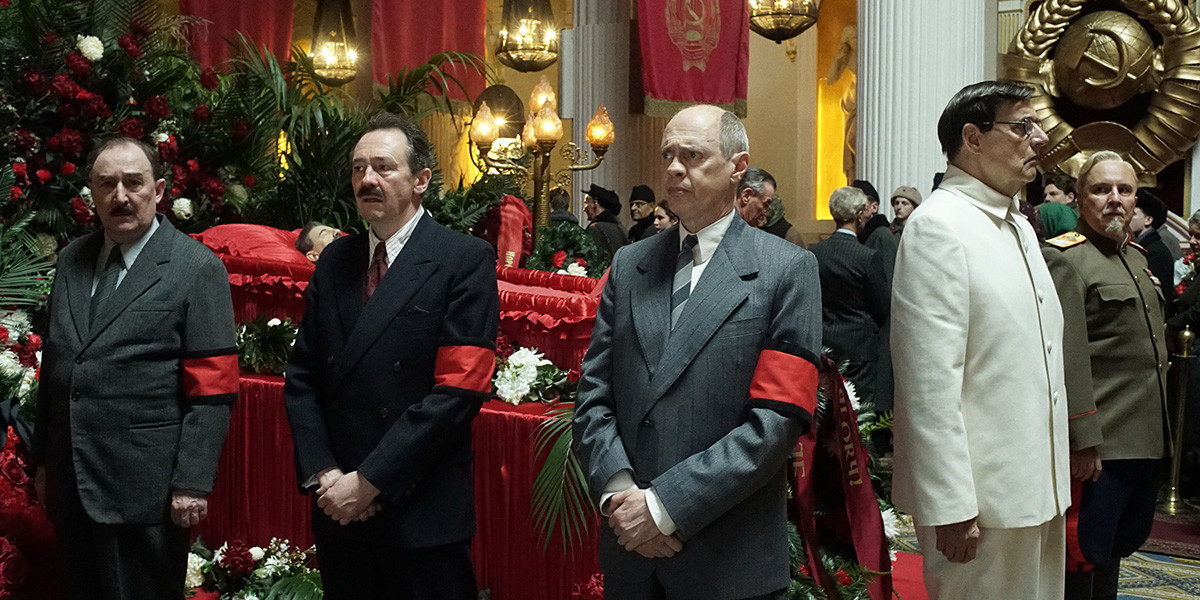Charlotte Perry reviews Armando Ianucci’s latest satire which strikes a lot closer to home than first expected.
Just a few months ago, a poll of 1,700 Russians named Stalin as “the most outstanding person” of all time. This is the context within which Iannucci’s scathing, dark and hilarious satire of Stalin’s death has been released. Simply put – the film is brilliant (but Putin, and apparently most of Russia, disagree). It is witty, it makes you uncomfortable, but not ridiculously so, and it admirably captures the chaos and paranoia that permeated Soviet-era Moscow.
The film is based on a graphic novel by Fabien Nury and Thierry Robin which begins with a disclaimer advising that the story has been made using evidence ‘that was at best patchy, at times partial, and often contradictory’. The humour and satirical nature of the film compliment this lack of historical certainty. The wit, and at times plain silliness, serve as an ever-present reminder that the film is a caricature of times past and consequently mocks the actions of soviet bureacrats without claiming to be historically accurate. Iannucci truly succeeds in respectfully finding comic absurdity in the sickening actions of the NKVD.
The film follows a group of self-absorbed Soviet dignitaries who bicker and stumble over each other following the unexpected death of their illustrious leader. As well as being comedic and, simply, very entertaining, Iannucci tells the story of what happens when democracy breaks down and freedom of speech is barred. Stalin famously called those who spoke against him ‘enemies of the people’ in a way that feels eerily resonant of comments made by Trump about people who disagree with him being ‘unpatriotic’. The film seemed to subtly question how the Trump-era will be viewed in future generations, provoking the audience to consider the comparisons that will be drawn between him and other historical tyrants.
The cast was superb; Simon Russell Beale and Steve Buscemi shone particularly in their roles of Beria and Khrushchev, respectively. In addition, the decision for all actors to perform with distinctive accents, for example, Buscemi with a stark Brooklyn accent and Steve Russell as Georgy Zhukov with a broad Yorkshire one, had great comic effect. The incongruence of these accents with the painstakingly detailed set and costumes contributed to this further.
The film is not without fault, however, and some will argue that it is categorically inappropriate to encourage misrepresentations of such an oppressive and tyrannical time in history. Despite this I believe the film did overwhelmingly lie safely on the side of witty satire and will be watched for years to come.
Charlotte Perry
(Image courtesy of TIFF)

